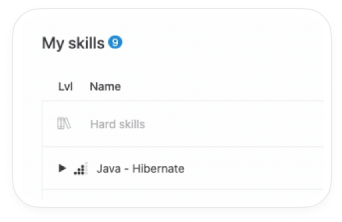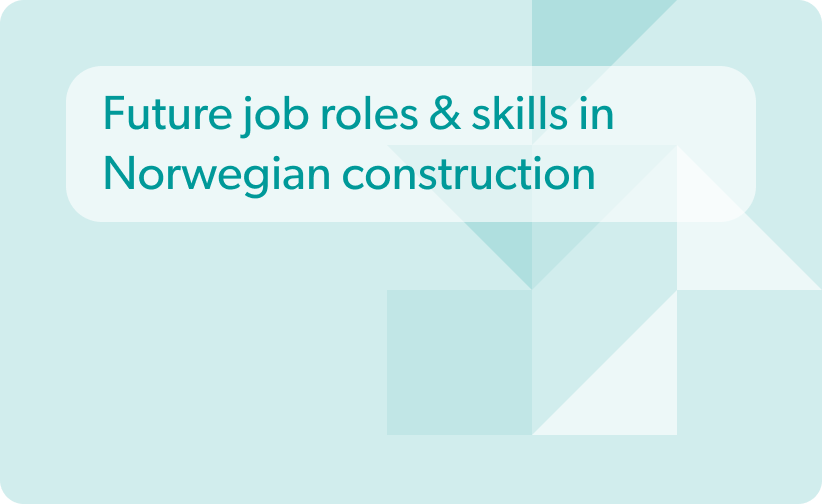Interview with Lou Adler, CEO at Performance-based Hiring Learning Systems
Meet Lou Adler, CEO at Performance-based Hiring Learning Systems, and the author of the books “Hire with your head” and “The essential guide for hiring.” We discussed the key challenges and top priorities of recruiting nowadays and beyond.
Challenges for recruiting nowadays
Q: Lou, could you please share your thoughts on key challenges in recruiting nowadays?
25 years ago, in 1997, a book and a study came out that said with job boards, the Birth of the Internet applicant Tracking Systems, and the use of new technology, the war for talent would be won, and it would be easy to hire people.
It was 25 years ago. Back then, I wrote an article at that point and said that would never happen. It would be a waste of money because that’s not how good people change jobs in the interim 25 years; probably $500 billion has been spent on hiring and technology, and nothing’s changed. We just have more people changing jobs more quickly. And there’s this hustle to do it as fast as possible. In my mind, that was the creation of technology, which put recruiting on a downhill trend.
Internet and a quick change of work through employees
Sadly, I don’t see that trend reversing. I see it in some isolated instances where people recognize that recruiting needs to be a high-touch process. If I try to recruit you, and you’re a good person, and you’re reasonably happy, you’re not going to just take a job without thinking it through.
You go on LinkedIn, and here are ten job ideas for you. So, all these job boards and LinkedIn get people to change jobs and make money. But the people changing jobs aren’t any more satisfied. They might make a little more money. They’re all changing jobs because they’ve been seduced to change jobs. And that, to me, is a fundamental problem. And I see nothing changing.
So I said this 25 years ago, and I still believe that’s true today. Sad to say, but this technology is going to solve the problem. I’ve been around at least 50 or 100 different new technologies, and none of them work. And yet, the next one will solve all those problems that the other 99 didn’t solve.
Q: So, for your technology, it’s like a challenge for you as a recruiter.
Well, actually, it’s not a challenge if you do the right thing because I help companies hire people. We define work a little bit differently. We take longer to interview the candidate and must give the candidate more time to make a proper career decision. And then, we compare jobs based on not only what they get on the start date but also the work they’re going to be doing and whom they’re going to be doing it with, and the career opportunity. So, we look at all those factors in much greater depth. And then we call that a high-tech, high-touch process.
But without the high touch, you just leave it to it. You make it very transactional, just like buying groceries with this pastry because it’s $0.10 cheaper. So, I think the idea is that, yes, a good recruiter and good people can find jobs in this market, but it’s probably going to be more personal and high touch and more long-term and more discriminating.
Recruiting priorities nowadays
Q: What are your top priorities for recruiting today and beyond? For example, what do you put in front of you as a recruiter?
Well, you got to remember, I’m an old guy, so I don’t do recruiting, but I still help companies train recruiters, and I basically say that is the key to hiring better people. And I make this statement. If you want to hire a great person, you should have a great job. And a great job isn’t a laundry list of skills, experience, and competencies. Having a great job defines the work the person will be doing, why that work is intrinsically satisfying, and why that work enables this person to become better at what they want to become.
To me, the biggest priority I have is getting hiring managers to truly understand the work they’re doing and giving candidates the full opportunity to understand that work and understand that they’re both competent and motivated to do it.
It matches the job and the candidate’s aspirations with the company’s job and their needs to fill that job. And that’s the stiff challenge, making those two things work together. And technology is not to solve that too well.
Job titles and skills most essential for companies
Q: How can companies know what skills and jobs they will need in the future? When looking for candidates, how do they know what they need, what problem they need to solve, and what skills they need to develop in their workforce?
Well, number one, there are two dimensions.
Workforce planning
How many people do they need to hire for what kind of work? That’s called workforce planning. So, the company expects, like, I just saw a report today that Ford Motor Company is opening their new AV truck, the electronic truck. But I know they will lay off many people who make combustion and gas engines and hire more engineers to make electric cars. So, when they had a plan together, they knew we wanted to sell 500,000 trucks between 1923 and 1925. We need 14 factories; we need this, so they can create a workforce plan of what they need. So, they know the people they need to hire at some level.
Internal mobility
Now, if you’re looking for engineers or anybody, hire people who can have raw skills. Maybe you have to be an electrical engineer and a computer software guy to help design a truck. And you have to be smart to learn stuff. So, they need people with these basic skills and the capacity to learn and grow.
Q: For what job role will the needed skills of the candidates change the most? And I think that your previous answer was connected to this because I think the roles of the engineers, of those who work with software, will change the most.
Background I do have an engineering undergraduate degree. So I knew when I first graduated at 22 years old, I knew some stuff, but I got on a job, and I learned how to use that and learn other stuff. And then I got into assignments, and they said, okay, you got to go to this week of training to do this. So you have to be adaptable and grow. So you have these core skills that a person has.
And then the company, as you’re intelligent and capable and can grow, that you map and you want to do those things, provides extra training or you learn extra stuff. So I have someone I talked to the other day who’s taking some advanced Python courses and taking some other training concerning that people grow and adapt. Even so, have some core skills in that arena and be a person who wants to learn and grow and be challenged by learning all the time.
When looking for candidates, we look for candidates of the intrinsic nature of wanting to grow and learn.
Candidates do self-development. They take courses on their own; they read more books. So you can find people who have that capacity to want to grow and learn if they have brought the core capability to the initial job.
Recruiting importance for the company
Q: How can recruiting help companies stay competitive in the labor market or their business niche?
To me, a good recruiter, and I was a recruiter for many years, and in time, for ten years, I only dealt with the best accounting people in Southern California. And I’m telling that story because you called me if you needed an excellent accounting person. So I have developed a profound network of accountants. When I was 20, as someone who was just out of accounting school, these people would always call me constantly with names of good accountants. Companies would call me, “Hey, we know Lou has great accounts.”
Developing a very deep network is part of how a recruiter can help.
I also had a lot of background in manufacturing and medical devices, so I had many clients and an intense network. So if you needed a manufacturing person to make some new medical device, “Hey, let’s call Lou. He probably has a deep network.” So all I had to do was make one or two phone calls, and within two or three days, I had half a dozen good candidates for that job.
How did I do it?
I joined clubs. I joined groups. There were different people I was involved with. I met different people. I interviewed other candidates. “Hey, let’s just have a meeting, and we’ll connect for the future.” So I really developed the art of networking as the key to being a good recruiter. And I still think that’s critical. Just if I call you up and I never knew you, and I find your name on LinkedIn, and I call you up as a cold call, you will not trust me. You know, all my interest is to make a quick placement.
On the other hand, if I knew your sister, your brother, or a good friend, I said, “Hey, this person, this friend of yours just called. He said you’re a great engineer, and I would love to chat with you about something.” You have this instant connection, so it’s developing those warm, converting these cold calls to warm cores, and you can do that through networking. You still should have a good job. So that the other point is to have a great job and build a network; that’s how recruiters can really be a tremendous asset to a company.
Understand the work, and the company, be very credible, and have a deep network. If you do those things, you’ll be very successful.
How recruiting has changed over the last 40 years
Q: How long did it take for you to build this network?
Let me give you two answers.
Answer one: When I started as a recruiter, there was no Internet. There were just phone books. I remember one assignment I had for a factory manager making plastics. So I looked in a book of, okay, who makes plastics? And I just started calling people, who are the managers? So after about a week of making that, I found half a dozen pretty good people. But you do that for six months to a year; you have a pretty deep network nowadays, although I don’t have a deep network in that I can find people in 20, let’s say, overnight.
Answer two: Nowadays, I’m going to LinkedIn, and I can find anybody in 24 hours. I can have 20 people, but now I have to contact them. So now I have to figure out how to get this person to call me back. So I almost do this backward reference. How do I get this person to connect with me or work with me? In my case, I’ve written a couple of books, so if I call people up, I’m credible.
A lot of the work takes months, if not years, to build a good network. But k. But on the Internet, you can still find people quickly. You have to be a little cleverer about connecting with them. So I don’t think the answer is the same as when I started versus today, 40+ years ago.
You can build it now. But if you call someone up and you don’t know the job, you don’t know the company, and all you’re doing is trying to hustle someone, they’ll hang up on you. So you still have to have many skills and understanding of the company, the job, and your process. And suppose a recruiter has written articles on LinkedIn and some posts and has some other credible things. In that case, that certainly enhances that person and increases the likelihood the candidate will call the person back, even if you can find the names overnight.
Q: How did it influence your work? Or probably, you know, recruiters who are working nowadays and how did it influence their work? Or is there any difference nowadays for recruiters to do their jobs?
For example, COVID-19 has profoundly changed the recruiter’s job positively and negatively.
Positive change: Candidates know they will not be traveling. So I talked to a woman probably a year ago now, though. She lives in New York City. She lives in California but has a job in New York City. And she knew the president of the company, and she said, well, we can’t travel. We only meet once a month, anyway. So if you can just get to New York City once a month, you can still live where you live in California.
I think the big impact when I’d say is location doesn’t matter anymore because of everybody working at home and being acceptable to work at home; it’s taken the location barrier away.
Typically, your location is tough to map when you’re recruiting is very hard to map. I have a map of the United States I’m looking at, but I had a client a few years ago who was in downtown Los Angeles. So imagine downtown Kevin is probably crowded. There’s probably a lot of traffic. Nobody wants to work downtown, even if it’s a good job; you don’t want the hassle of commuting every day.
I had a bunch of great candidates. They turned the job down. They just didn’t want to go into this downtown. They didn’t want to change their lifestyle. It was an extra hour every day of commuting. They didn’t want to hassle it. Now they don’t have to be in the office every day. Just be there a few hours every day or once or twice a week.
Negative impact: I think in the long term, there are some issues. I think working from home and not working with colleagues on a day-to-day basis and getting to know people is just like if you and I work together on a project and say, hey, let’s go for lunch; I want to chat with you about a lot of work that gets done not in meetings, let’s have a cup of coffee, let’s go to the cafeteria, let’s have a cup of coffee. I want to ask you this. How do you handle this problem?
A lot of the things in sales, marketing, and accounting were done just by collaborating. You’re just seeing someone in the hallway.” Hey, I have a question for you. Let’s talk about this.” So I think that’s missing, and from a work standpoint, I think that’s a problem. From a recruiting standpoint, hiring people is probably more manageable when the location doesn’t matter.
I think there are some long-term repercussions that we probably don’t understand yet of not working together; what they are, I’m not positive, but I think this combination of working together in person and remote works. And maybe we’ll be fine. I don’t know. Maybe we’ll just get used to it as human beings.
Q: Will the recruiter’s role extend to involve the deployment of business strategy? Can it help in deployment?
A good recruiter should be involved in the strategy. The recruiter’s role is to find a job for a qualified person. If you can hire a better person, you’ve had a strategic impact on the company, produce more, get along better, grow faster, come up with new ideas, sell more, more accurate accounting, whatever it is. If you can play someone who raises the average, you’ve had a massive strategic impact on the company. And I think my company and I did that a lot as a recruiter. I remember one client, still a friend of mine, president of a company. I replaced the controller, the VP of finance, the head of manufacturing, the head of quality control, the factory manager, probably six or eight people, and they’re all great people. And he was a friend of mine, and we were doing business together.
So there is a strategic role, number one at the time.
If you’re only placing entry-level people in a call center, that’s not strategic. But if you’re placing managers or directors of vice presidents, the impact of those people on the company is strategic. You hire a good person and change the direction of the company. You hire an average person; it impacts the company’s success.
So I think the quality of the people you represent at the level can strategically impact the organization. And the more influence you have on getting those assignments and filling these people with great jobs, the more impactful you’ll be. Recruiting can be an essential job, but you’ve got to do it right, and you’ve got to be good at it.
Stay up to date with our newsletter
Every month, we’ll send you a curated newsletter with our updates and the latest industry news.


























 info@hrforecast.de
info@hrforecast.de
 +49 89 215384810
+49 89 215384810






